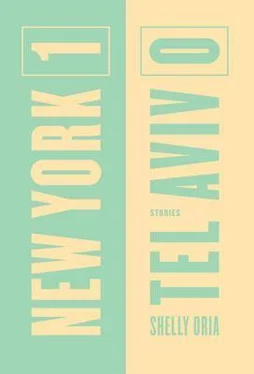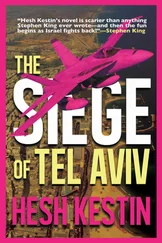* * *
When times got rough, they got rough fast. I made some mistakes, then made things worse trying to correct them. It was a crisis of speed and faith, you could say — I was always a slow investor, always took hours staring at stats, and now that there was no time to do that, I found myself giving up and leaving, again and again, when all I had to do was believe that tomorrow’s numbers would look better than today’s. In short, I failed.
* * *
I needed cash, but for obvious reasons I tried to downplay my decision to donate. I didn’t want everyone in town talking about it, speculating on the reasons. I went during the night shift, to one of the small stations on the outskirts of town, on a day when Jordan F was away delivering. I expected word would get out if I kept at it, of course; I just wanted to slow things down. What I didn’t expect — couldn’t have expected — was the rush that it gave me. No one had ever mentioned this lightness, all your worries losing their weight and the air getting thin like you’re at the top of a mountain, close to the sky. Take more, take everything, I told the nurse, a woman whose braids I used to tug on years ago. Lie down, stop jumping, she kept saying, you’ve always been so restless.
* * *
I stayed up the whole night after that, awake with excitement. Suddenly I couldn’t wait for Jordan F to come back, so I could share the news. The next day in the afternoon, I was walking down Benevolence Ave., which gets the worst of the town’s traffic on weekdays. Through the sequence of moving-trucks and buses, a wounded man cried in an attempt to get my attention: Sir, sir, would you please lend me a hand? He was bleeding so bad it was hard to know which part of him was missing. The man was an out-of-towner, or at least I didn’t know him. Our town always attracted that sort of thing — people assumed if we were donating blood, we’d be open to donating organs, too. Jordan F, anyone else in town, would have kept on walking. I crossed the street to get to him. He was begging — Please, man, please, please. His body contorted as if he were trying to draw something in the air with his knees. I looked at him and felt a tickle of the lightness from the previous night. I thought, He did say lend . And if he doesn’t actually give it back, well, I’ll still have the other one.
* * *
A few hours later I walked over to Boon’s Bar a one-armed man, to meet Jordan F. My left pocket felt empty — I had the habit of twirling my fingers in there — but it was the kind of emptiness that didn’t seek to be filled. When I stepped in, Jordan F noticed the change right away. And right away he was being judgmental. I said, Let me point out that I’m perfectly functional with one arm; most days I forget I used to have two. Jordan F snorted. Most days? he said; it’s only been a few hours. It was one of those truths whose falseness you couldn’t prove. I don’t care to discuss this further, I said. The conversation I wanted to have felt out of reach.
All right, Jordan F said, but what’s going on with you? There’s a rumor going around that you started donating. He said this with half a chuckle and all of a sudden I wished he’d go on a very long delivery. I did, I said and flipped him my donor stamp. Jordan F’s eyes opened wide, and his mouth angled toward his chin. Why? he said, stunned. I needed the money, I said, my words quiet. I knew I’d been happy a couple minutes ago, but couldn’t remember why. I thought that’s what you always wanted, I said. Yeah, no, Jordan F said, I don’t know. We sat there like that for some time, ignoring our beers. When we were younger, before Jordan F started driving blood, people used to tease us, call us faggots. Real friendship between two men is not something you see in this town. I never minded it much, but it used to bug the hell out of Jordan F. It’s been so many years, but I found myself thinking about it now, sitting at Boon’s with him.
I thought for a while that he would never speak again, or at least not to me. And even though I walked in thinking we would toast and laugh, a part of me knew it would go exactly as it did. Jordan F was always giving me grief for not donating, separating myself from the town, but he didn’t really want anything to change. He liked that I knew nothing about bloodwork. When you’ve known someone your whole life, all it means when you feel surprised is that you’re fooling yourself.
* * *
Shortly after, my sister, Lulu, needed a kidney. It got worse was all she said on the phone, but I knew what she meant — she’d been sick since we were small.
Jordan F and I had been distant since that night at Boon’s, so I asked Lulu not to mention anything. Sure thing, Lulu said, which usually meant she wasn’t listening. The next day, Jordan F was at my doorstep. You’re saving the life of our little sister, he said, and you thought I would give you a hard time? She’s not your sister, I said. Jordan F always loved Lulu, used to say when she smiles, armies around the world stop fighting. (Jordan F, due to his line of work I suppose, always talked about the war as if any pause in the fighting was a precious gift, more than we should expect.)
* * *
Look, I’m sorry I was an asshole, Jordan F said. If you want to start donating, you should start donating. Who am I to say? I was only surprised, he added, because I thought you’d ask me for money if you were short, that’s all. His voice squeaked as it does when he lies, but I smiled. He was trying his best.
* * *
To donate a kidney, you had to belong to an organization; the organization issued a card, and I was put on a database. People from around the world started writing to me, sharing awful stories. I read and kept every letter, mainly out of superstition — I had a feeling that, the day I got rid of one, Lulu’s body would start rejecting my kidney. But I only filed the letters and ignored them; I saw no point in writing back to disappoint. And I wasn’t about to give away any more of my organs. Life had calmed down: Lulu was getting better, Jordan F wasn’t mad at me — which mattered more than I cared to admit, more than it should have — and once a week I would go late at night to donate some blood and feel high. It was enough money to keep me going, and no one in town seemed to talk about it much. On the nights when Jordan F was home between deliveries, we would be at Boon’s until the dark started to fade, and whenever Lulu was feeling up to it she would drive over and join us. We avoided any talk of blood or the war or donations, and for a while all of that was just fine.
* * *
When I got the letter from the woman in Uzbekistan, I filed it away with the rest, but it stayed with me. In my dream that night, she and I were sitting at the top of a mountain, playing card games. The game seemed to be whoever gets the king wins. I’ll tell you what, the woman said in a British accent, if I get the king three times, you have to give me what I want. And if I get the king three times? I asked. No one will bother you again, she said.
* * *
I woke up and thought about it rationally. I’d never been a smoker. I was pretty certain I could do with one lung.
* * *
A reporter from a local paper a few towns over contacted me after that, wanted to run a story. You are an altruistic man, he said, and for a moment I let myself think perhaps I was, so I said Thank you. When he asked why I did it, I said this kind of giving made me happy. I said “It’s a special feeling.” I didn’t describe the feeling. I avoided the word high . The reporter used some Russian woman to pose as the Uzbekistani patient in the photographs, but all in all he did a decent job. And it was strange — reading it, I felt I was looking at a self of mine I hadn’t known.
Читать дальше












